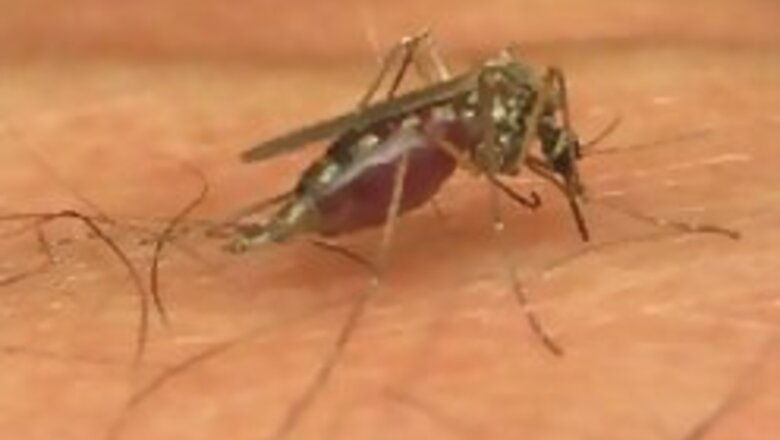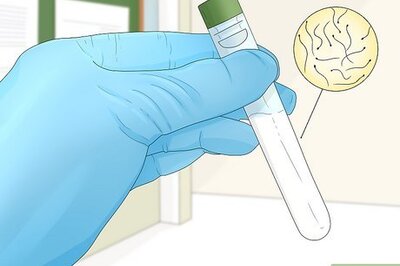
views
New York: The WHO has strongly recommended indoor use of DDT insecticide, maligned for over 30 years, for killing mosquitoes that spread malaria, which has caused deaths of one million people, mostly children in Africa alone.
Using DDT within a room or hut works like a mosquito net but is more effective over long periods and kills the disease carrying mosquitoes while people are asleep.
DDT went into disrepute over its widespread use outdoor which adversely impacted the environment.
However extensive research and testing has since demonstrated that well-managed indoor residual spraying programmes using DDT pose no harm to wildlife or to humans, WHO said.
In the past, India was able to use DDT effectively in indoor residual spraying to cut dramatically the number of malaria cases and fatalities.
Announcing the new policy, WHO on Saturday said it would recommend the use of indoor residual spraying (IRS) to reduce the number of infections caused by mosquitoes not only in epidemic areas but also in areas with constant and high malaria transmission, including throughout Africa.
"The scientific and programmatic evidence clearly supports this reassessment," WHO Assistant Director-General for HIV/AIDS, TB and Malaria, Dr Anarfi Asamoa-Baah, said.
Indoor residual spraying is the application of long-acting insecticides on the walls and roofs of houses and domestic animal shelters in order to kill malaria-carrying mosquitoes that land on these surfaces.
"IRS has proven to be just as cost effective as other malaria prevention measures, and DDT presents no health hazards.
WHO actively promoted indoor residual spraying for malaria control until the early 1980s when increased health and environmental concerns surrounding DDT caused it to stop promoting its use and focus instead on other prevention means.
"Indoor spraying is like providing a huge mosquito net over an entire household for around-the-clock protection," US Senator Tom Coburn, a leading advocate for global malaria control efforts said.
Environmental Defense, which launched the anti-DDT campaign in the 1960s, now endorses the indoor use of DDT for malaria control, as does the Sierra Club and the Endangered Wildlife Trust.
The recently-launched American President's Malaria Initiative (PMI) announced last year that it would also fund DDT spraying on the inside walls of households to prevent the disease.
"I anticipate that all 15 of the country programs of President Bush's $ 1.2 billion commitment to cut malaria deaths in half will include substantial indoor residual spraying activities, including many that will use DDT," Admiral R Timothy Ziemer, Coordinator of the President's Mal aria Initiative said.
WHO says programmatic evidence shows that correct and timely use of indoor residual spraying can reduce malaria transmission by up to 90 per cent.
South Africa has again re-introduced DDT for indoor residual spraying to keep malaria case and fatality numbers at all-time low levels and move towards malaria elimination.




















Comments
0 comment